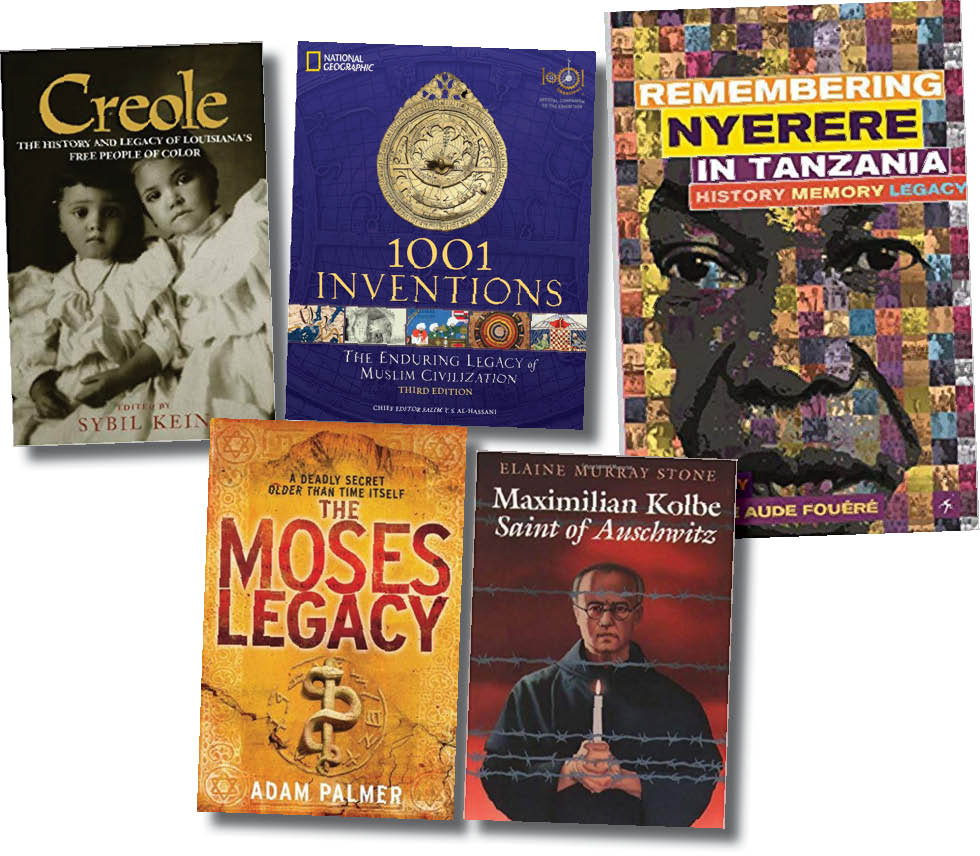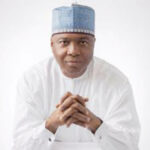We are at that time of our lives when history and legacy should mean a lot to us. We are not made to live forever. All man is mortal and one day no matter who we are, in spite of our riches, our houses, cars and power, everything goes into dust.
Man’s very existence is a journey and a spiritual one. The best of men leave a legacy, a name in the sands of time and not all of them were wealthy. Some persons did what they had to do for others, some did what they had to do for nations and others just for humanity like the catholic priest who sacrificed his life for another prisoner in the dark days of Hitler in a German prison camp at Auschwitz.
In times of doubt, the best place to check how we can impact is history. I was heartbroken when history was scrapped as a subject in school. It was one of my favourite subjects and as I travelled through Mali on a recent visit, it took me straight to my history class in secondary school. I was re-enthralled by the stories of Mansa Moussa and Sundiata, great kings of the Mali Empire. It is upon such nostalgic feelings, feelings of pride and great authentic history that we survive the onslaught of the destruction of our traditions and richly robust culture.
It is on the wings of our forebears that our brothers and sisters sold into slavery were able to keep hope alive. History, legacy is beyond us and beyond our existence. What do you memorialize? What is your legacy? I bring you today five amazing books on history and legacy.
Enjoy!
- Creole: The history and legacy of Louisiana’s free people of colour Edited by Sybil Klein. This is an excellent book. Especially because the word Creole evokes a richness rivalled only by the term’s widespread misunderstanding. Now this unique people and culture is given a thorough, comprehensive, multidisciplinary history in this book. Written by scholars, many of Creole descent, this is a great read full of stuff of legend and conjecture. One of the contributors is Fehintola Mosadomi, who addresses the downtrodden roots of Creole grammar while Caroline Senter looks at Reconstruction poets of political vision. Then there is the story of the lifestyles of Creole women of colour in the 19th century and a look at Afro-Caribbean links to Creole cooking. Sybil Kein a.k.a Dr Consuela Provost, a Louisiana Creole Poet, playwright, scholar and musician does justice to Creole history in this amazing book.
- 1001 inventions: The enduring legacy of Muslim civilization 3rd Edition edited by Salim T.S Al-Hassani. This book takes readers on a journey through years of forgotten Islamic history to describe one thousand fascinating scientific and technological inventions still being used throughout the world today.
- “Mwalimu” which means teacher in Swahili is how this first president of Tanzania, Julius Nyerere was fondly called. This next book, Remembering Nyerere in Tanzania. History, Memory, Legacy Edited by Marie Aude Fouere is on the rekindled investment in the figure of Julius Nyerere in contemporary Tanzania. How he is remembered by Tanzania from different levels of society. The main argument is that Nyerere became a widely shared metaphor to debate and contest concepts of the Tanzanian nation and Tanzanian-ness. It also throws up the moral state of exercising power. The book has contributions from budding and renowned scholars across multiple disciplines, political science, history and anthropology, A book for all leaders across the African continent to weigh in on history and legacy of their governance and accountability to the people they govern. A litmus test.
- “Mwalimu” which means teacher in Swahili is how this first president of Tanzania, Julius Nyerere was fondly called. This next book, Remembering Nyerere in Tanzania. History, Memory, Legacy Edited by Marie Aude Fouere is on the rekindled investment in the figure of Julius Nyerere in contemporary Tanzania. How he is remembered by Tanzania from different levels of society. The main argument is that Nyerere became a widely shared metaphor to debate and contest concepts of the Tanzanian nation and Tanzanian-ness. It also throws up the moral state of exercising power. The book has contributions from budding and renowned scholars across multiple disciplines, political science, history and anthropology, A book for all leaders across the African continent to weigh in on history and legacy of their governance and accountability to the people they govern. A litmus test.
- Maximilian Kolbe, Saint of Auschitz by Elaine Murray Shore is a biography of the catholic priest who offered to be put to death instead of a Jewish husband and father, Francis Gajowniczek. The Jew was jailed for assisting the Polish resistance and selected for punishment to be sent to the starving cells to die of hunger and thirst. Father Kolbe chose to go instead of the Jew as he felt he had no family. When Francis was released from the German Nazi camps, he found all his children dead and discovered that the priest had sacrificed himself, he dedicated his life to telling the world of Kolbe’s unselfish love and was in the forefront of campaigning for his canonization. Kolbe was canonized a saint in 1982. Sacrifice at its most selfless.

 Join Daily Trust WhatsApp Community For Quick Access To News and Happenings Around You.
Join Daily Trust WhatsApp Community For Quick Access To News and Happenings Around You.


